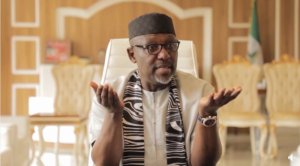
The implementation of Nigeria’s new minimum wage of N70,000, signed into law by President Bola Tinubu on July 29, could face delays as state governments work through essential procedural adjustments. While a few states, including Kano, Kwara, Ogun, Borno, Jigawa, Ondo, and Abia, have established committees to oversee the rollout, the majority of states have yet to begin the process.
Professor Theophilus Ndubuaku, Deputy President of the Nigeria Labour Congress (NLC) Political Commission, explained that the delay is due to the intricate process of calculating wage adjustments across various levels of employment. “The signing of the wage bill is just the first step,” Ndubuaku stated. “The consequential adjustments, which involve recalculating wages from entry-level positions to senior roles, take time and must be done in collaboration with labor unions.”
Ndubuaku reassured workers that there is no intentional delay in implementing the new wage. He expressed optimism that the necessary adjustments would be completed by the end of August, urging patience from all parties involved. The delay, he emphasized, is part of ensuring that the new wage structure is accurately and fairly applied across the country.






Be First to Comment